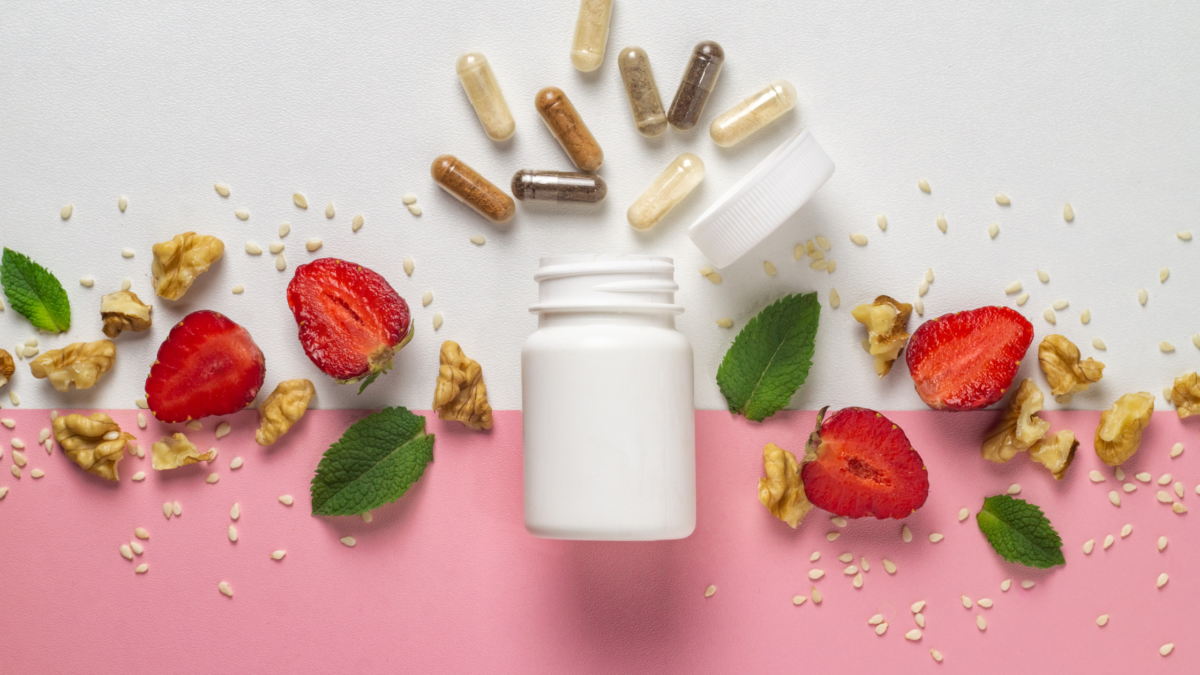


Medically Reviewed By Margaret Etudo. Written By The Vitamins For Woman Team.
There are a lot of ways you can treat your hormonal imbalance and one of those ways is to take a vitamin for that.

Hormonal balance plays a crucial role in a woman’s overall well-being, affecting everything from mood and energy levels to menstrual health and fertility. When hormones become imbalanced, it can lead to a variety of health concerns, including irregular periods, mood swings, fatigue, and even conditions like PCOS and menopause symptoms.
Fortunately, certain vitamins and minerals can support hormone regulation and improve overall health. In this article, we will explore the best vitamins for women’s hormonal balance and how to incorporate them into your daily routine.
There are a lot of reasons for hormonal imbalance in women and it can result from a variety of factors, including:
Being a woman is not easy at all; it’s like something is always out to get you, and this time, it’s your hormones.
Certain vitamins and minerals play a key role in maintaining hormonal balance and alleviating symptoms associated with hormone imbalances. Here are some of the ways vitamins can help balance hormonal health:
Now you’ve seen the benefits of vitamins for hormonal balance and you’ve seen what you stand to gain if you start taking your vitamins now, let’s see the best vitamins for women’s hormonal balance.
Vitamin D is essential for hormone production and plays a role in regulating insulin and estrogen levels. A deficiency in vitamin D has been linked to conditions like PCOS and thyroid disorders. Sun exposure, fortified dairy products, and supplements can help maintain optimal levels.
B vitamins, particularly B6 and B12, help regulate stress hormones and support energy metabolism. They also play a role in neurotransmitter production, which affects mood and overall well-being. Foods like eggs, leafy greens, and whole grains are excellent sources of B vitamins.
Vitamin E helps reduce symptoms of PMS and supports healthy menstrual cycles by reducing inflammation and oxidative stress. Nuts, seeds, and green leafy vegetables are rich sources of this vitamin.
This helps control your cortisol levels and supports your adrenal health. Found in citrus fruits, bell peppers, and in strawberries.
Also supports reproductive health and thyroid function. Found in carrots, sweet potatoes, and liver.
Magnesium is crucial for stress management, muscle relaxation, and hormone production. It can help reduce symptoms of PMS, such as cramps and bloating, and alleviate menopause-related discomfort. Foods rich in magnesium include nuts, seeds, and dark chocolate.
Other nutrients that support hormonal health include:
Zinc plays a crucial role in hormone production and supports immune function. It helps regulate menstrual cycles and supports ovarian health. Oysters, nuts, and legumes are excellent sources of zinc.
Omega-3s help reduce inflammation, support brain health, and balance hormones. They are beneficial for conditions like PCOS and menopause. Fatty fish, flaxseeds, and walnuts are rich in omega-3s.
Rhodiola is an adaptogenic herb that helps regulate cortisol levels, reducing the impact of stress on hormonal balance. It also improves energy and mental clarity.
Known for its benefits during menstruation and pregnancy, red raspberry leaf supports uterine health and helps regulate menstrual cycles.
These vitamins and nutrients are the best for balancing your hormones when they go off-kilter.
Yes, certain vitamins like B vitamins, vitamin D, magnesium, and omega-3s can help manage symptoms of PCOS and menopause by supporting hormone regulation.
A well-balanced diet can provide essential vitamins, but supplements may be necessary if you have deficiencies or specific health concerns.
Most vitamins are safe when taken in recommended doses. However, excessive intake can cause side effects, so it’s best to consult a healthcare provider before starting any supplement regimen.
Maintaining hormonal balance is essential for overall health and well-being. Adding the right vitamins and nutrients into your diet, can support your body’s natural hormone production and alleviate symptoms associated with imbalances.
Whether through diet or supplements, prioritizing hormonal health can lead to improved energy, mood, and overall wellness.

medically reviewed by margaret etudo, BPharm. written by the vitamins for woman team.